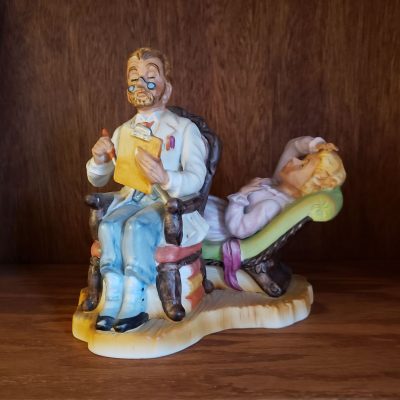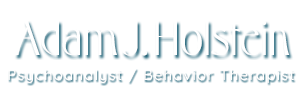The article “Therapy Wars: The Revenge of Freud“, written by Oliver Burkeman and published in The Guardian, is a brief review of “battle” between psychoanalytic therapy, developed by Freud and cognitive behavioral therapy, CBT. While CBT has been dominant for many years the success of CBT is being reconsidered in light of recent studies.
These studies reflect that the short term and apparent gains made using CBT are not sustained over time. To think that one can act without emotion, act without prejudice, be bias free, free of historical beliefs shaped by one’s family and society is simply not possible. To think that therapy cognitive or psychoanalytic is free from bias is also not possible. When a patient and therapist engage one another, there are explicit and implicit agreements within the relationship and about the goals of therapy.
CBT as does the principals of applied behavior analysis, assume feelings are misguided and/or essentially irrelevant. If we can be logical, rational and reasonable, we can address the folly of our feelings and do what we think we “should” or what we think is “right”. While not widely promulgated, Freudian psychoanalysis and the subsequent psychoanalytic schools of thought also rely on one’s intellect to articulate not only the manifest difficulties but to intellectually understand what feelings and thoughts, conscious and unconscious interfere/conflict with taking what might otherwise be logical actions to attain a desired outcome. In psychoanalysis the work in part is to connect to the feelings which are the genesis of the emotions which sabotage relationships and interfere with the development of love and potentially compromise one’s success in work.
CBT is a mechanistic linear approach based on rational thought. The problem is that the human animal for all its evolution is still predominantly driven by its instincts and/or feelings. We are need gratifying animals with great intellectual powers. Our intellectual abilities have allowed us to dominate all other species and the planet. We have yet to determine the outcome of our dominance.

My belief is that the current psychoanalytic approaches acknowledge with ever increasing humbleness that the therapeutic relationship and treatment is shaped by both the patient and analyst. The analyst having been trained in the tools of analysis and having been in intensive therapy, is able to guide the treatment. The analyst having been in treatment is alert to when their defenses are being activated and able to explore the feelings and thought(s) within themselves, with their supervisor and perhaps with the patient. The analyst can hear the patient’s verbal, symbolic and non-verbal communications and reflect on the patients struggles within the patient, between significant others in their lives and within the therapeutic relationship. The analyst can hear and see how the patient will seek to validate their beliefs in their interactions with others and miss other parts of the communication.
No matter the approach be it CBT or any other I believe ultimately the relationship, the human connection formed to help a patient overcome their pain, suffering, limitations, isolation, anxiety, fears, loneliness, rage and/or hate. The patient must come to accept themselves and be the best they can be, is what ultimately enables a patient to live better and more peacefully. Life, simply put, is not easy. Having someone who understands, who is not critical and who can laugh at oneself and help the patient to do the same, is priceless. Perhaps ultimately being able to laugh at ones’ self is the best medicine. If we can laugh at our own “craziness”, if we can be humble and accept of our own foibles, perhaps we can live with acceptance of others.
Ultimately, we need to focus on what we have in common, as what we have in common, is greater than our differences. Finding areas where we can compromise within our relationships is critical to the success of a relationship be it at work or in our intimate relationships.
Feel free to call for a consultation, 516-297-5705.

